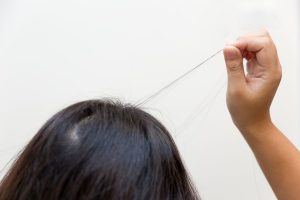Hair Pulling Disorder Treatment in Toronto
What is Trichotillomania?

Trichotillomania (or “Trich”) also known as Hair Pulling Disorder involves repetitive pulling out of the hair from one’s scalp, face or anywhere on the body resulting in hair loss. It is a self-grooming behaviour in which people pull their hair. Some people ingest the pulled hair or part of the pulled hair. Trichotillomania usually begins in late childhood or early puberty however it can begin at any age including early childhood. In childhood, it occurs about equally in boys and girls. By adulthood, 80-90% of reported incidents are women. Hair pulling varies in its severity, location on the body, and response to treatment. Without treatment, trichotillomania tends to be a chronic condition that can come and go over the course of one’s life. It can cause intense distress and shame as it can result in significant hair loss which one attempts to camouflage. Due to shame and embarrassment, individuals not only try to cover up the effects of trichotillomania but may avoid activities and social situations which may lead them to feel vulnerable to being discovered. Hair pulling can lead to tension and strained relationships with family members and friends who might also benefit from professional help.
There are times when hair pulling occurs in an intentional manner and also in an automatic manner in which the individual is less aware. Many individuals report noticeable sensations before, during and after pulling. A wide range of emotions, spanning from boredom to anxiety, frustration, and depression can affect hair pulling as can their thoughts, beliefs, and values.
How To Treat Trichotillomania?
The Comprehensive Behavioral Model (ComB) is the treatment method that I use to help my clients with hair pulling. Numerous research studies demonstrate its effectiveness. It can give you, as it has for others, the tools to change your behaviour patterns and to modify your thoughts and feelings that have fueled your hair pulling. Your unique sensory sensations, ideas and beliefs, emotions, motor and environmental needs will be met in other healthier ways. Treatment is a healing process that may seem challenging but by taking it slowly with patience and perseverance healing is possible for the majority of individuals.
BackMemberships & Accreditations










